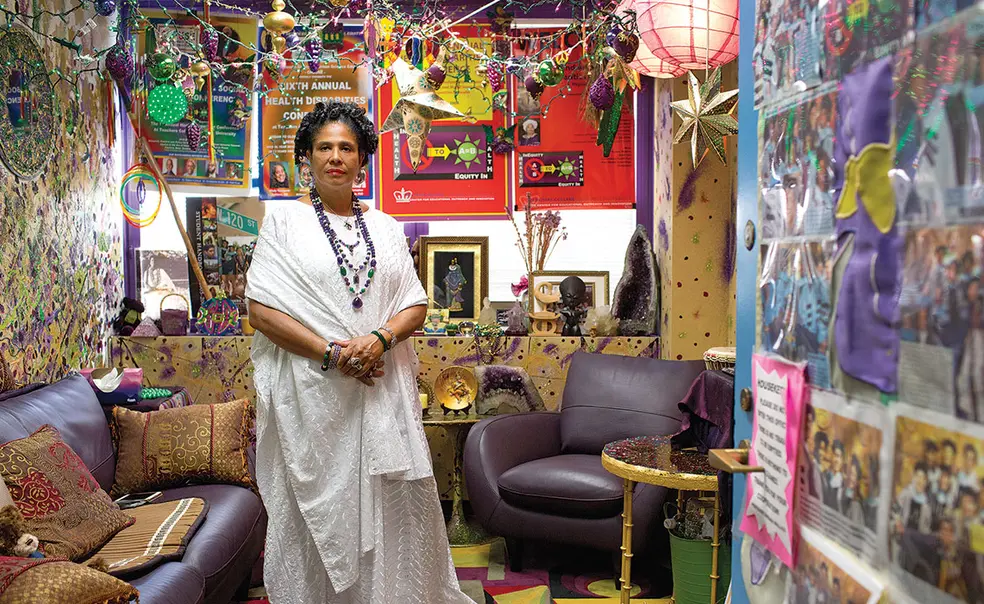Barbara Wallace ’80: Reaching Understanding
An educator in New York City chips away at some of America’s troubling trends
Thirty years ago, clinical psychologist Barbara Wallace ’80 was on the front lines of the crack cocaine epidemic. She helped launch the first specialized treatment unit in the New York City area in 1986 and pioneered a new approach to helping those patients. Today, as the country faces another addiction crisis, with soaring rates of opioid abuse, the lessons of the crack epidemic are providing guidance.
“Society learned that the criminalization of drug offenders has unsustainable costs,” Wallace says, referring to the mass incarcerations during the crack epidemic, a trend that destroyed communities and burdened state budgets. “Today, when police discover someone in a state of overdose, urgent medical treatment is clearly needed rather than arrest, permitting a medical and public-health approach to prevail.”
Wallace, who is a professor of health education at Columbia University’s Teachers College, thinks that today’s medical professionals need to learn “much earlier in their training to avoid the improper prescribing of opioids.” She is creating a new edition of her 2005 book, Making Mandated Addiction Treatment Work, to apply insights from the crack cocaine epidemic to today’s drug crisis. She also studies relapse prevention as well as health disparities, cross-cultural communication, and coping responses to racism.
Wallace has long believed that police officers need “grounding on issues of diversity and cultural differences” to perform their jobs. As a professor in 1988 at John Jay College of Criminal Justice at the City University of New York, which has many aspiring police officers and firefighters, she helped create the school’s first mandatory freshman course on race and diversity when few colleges were tackling such issues.
Wallace was the first African American woman to become a tenured professor at Teachers College, and she is a mentor to many graduate students from groups underrepresented in academia, including minorities, immigrants, and LGBT students. Inspired by the communal approach to life she saw during a trip to Ghana, she began mentoring Ph.D. students in small-group sessions to promote a support network.
“As a black woman in [academia], I did not have the experience of community,” she says. “I didn’t get any mentoring, and most of my publications were solo publications.”
The supportive atmosphere she has fostered with her students is enhanced by her office décor. The ceiling is strung with Christmas lights and paper lanterns. Tables and walls are decorated — by Wallace — with paint splatters of purple, green, and gold. Students sit on a stuffed, purple leather chair. The joyful setting, she says, gives students “a sense of peace and comfort, allowing them to open up and talk about their studies.”












No responses yet